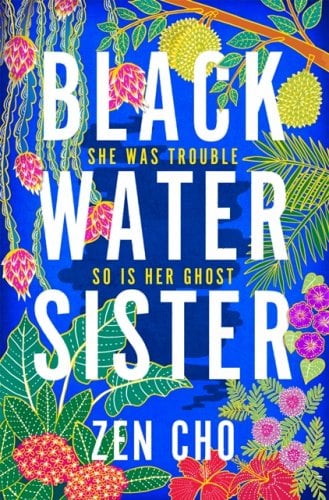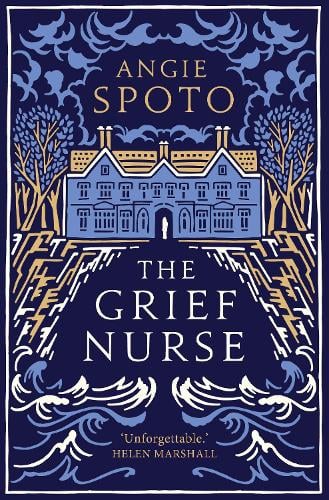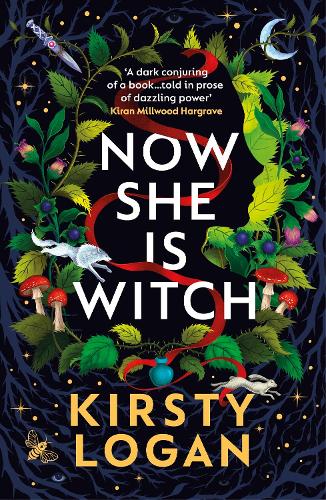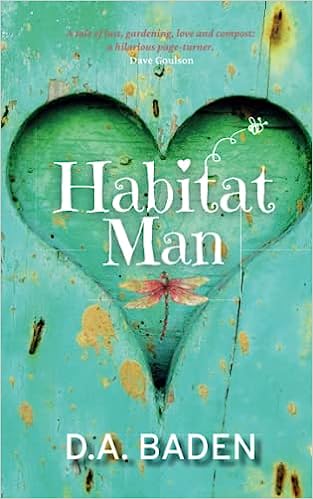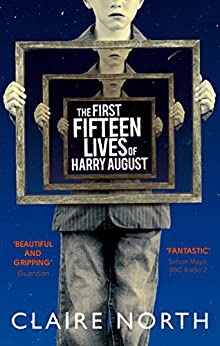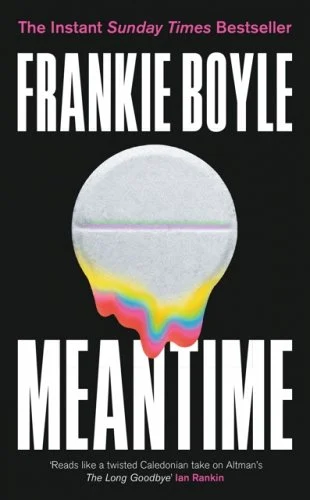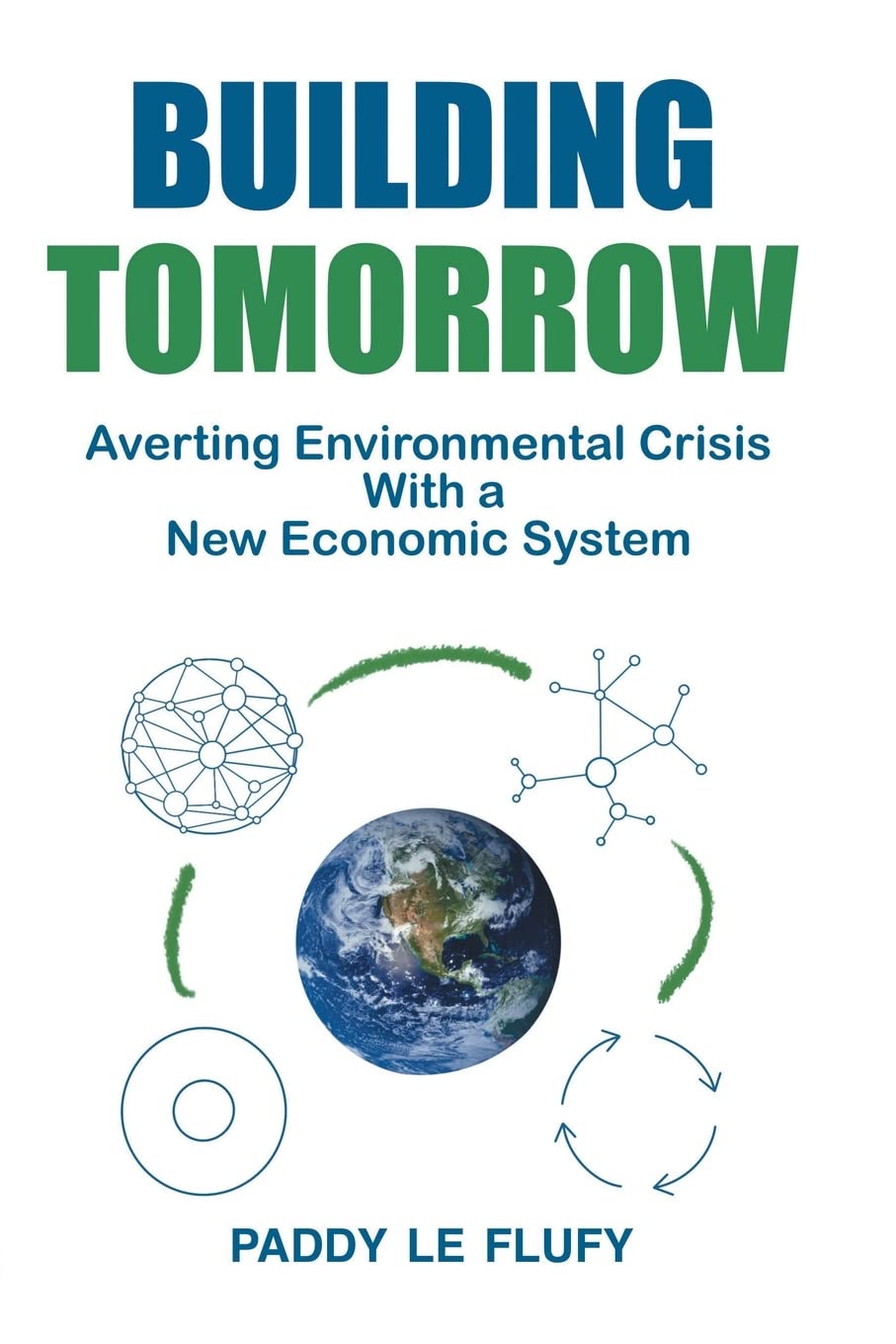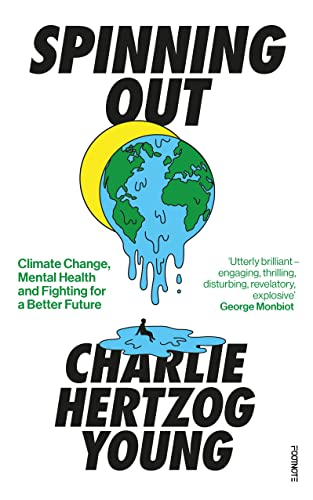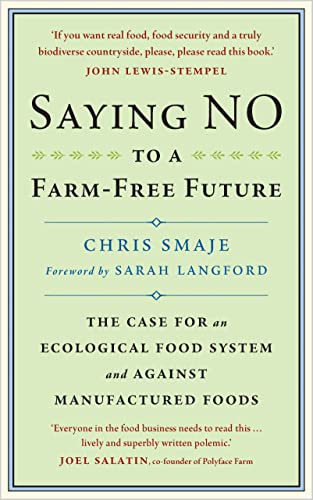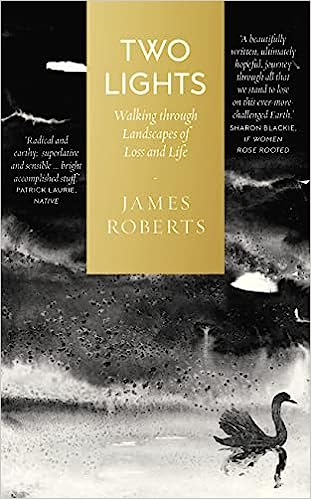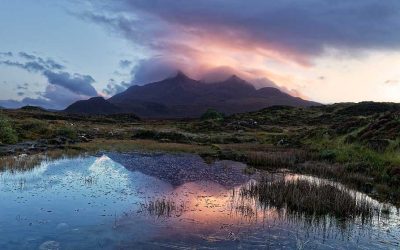#186 Manda’s Summer Solstice roundup of books, podcasts and life
At the halfway point of the year, Manda looks back on what’s been on the podcast, forward at (some of) what’s to come, thoughts on where we’re at as a world, and explores the books and podcasts that have stood out in the past six months.
Book links below in pink are for Blackwells (Manda’s favourite bookshop). If you prefer an Amazon link you can find those below the podcast player. Click on the covers and it will open the buy links.
Non fiction
A People’s Green New Deal by Max Ajl
Building Tomorrow by Paddy Le Fluffy
Spinning Out By Charlie Herzog Young
Saying No to a Farm Free Future by Chris Smaje
Two Lights by James Roberts
Post-Capitalist Philanthropy: Healing Wealth in a time of collapse by Alnoor Ladha and Lynn Murphy:
Fiction
Black Water Sister by Zen Cho
The Grief Nurse by Angie Spoto
Now She is Witch by Kirsty Logan
Habitat Man by DA Baden
The First Fifteen Lives of Harry August by Claire North
Meantime by Frankie Boyle
Podcasts
Bankless Episode with Eliezer Yudkowsky
Planet Critical – particularly the episode with Alastair Campbell
David Bollier’s Frontiers of Commoning, particularly the episode with Alnoor Ladha and Lynn Murphy
Your Undivided Attention
The Great Simplification
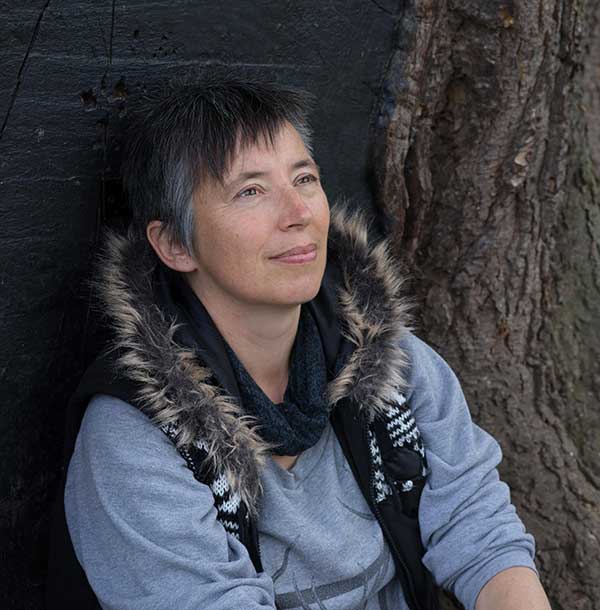
North Atlantic Ocean Surface Temperatures 2023

Audrey Tang’s job description

In Conversation
Manda: Hey people. Welcome to the Accidental Gods podcast, to the place where we do still believe that another world is possible and that if we all work together, we can still create a future that we would be proud to leave to the generations that come after us. I have to say, though, the gap seems to be narrowing quite fast. There is a graph I have seen which if all the technology works, will be on the web page showing anomalies in surface temperature of the oceans this year compared to previous years. I encourage you to look at this not because it’s going to help you sleep at night, but because we just hit the exponential part of the curve.
Daniel Schmachtenberger has been saying for a long time that the thing that’s going to nail humanity is our incapacity to understand exponential functions. But I’m assuming that if you listen to this podcast, you do actually get exponential functions, and that you can see that this curve is one and yes, it might flatten out. But what we’re seeing is not good. Things are changing very fast, which is why we’re doing this bonus podcast now at the solstice-ish of 2023. We do something similar at the winter solstice, me and Della and Nathalie Nahai, and we come together and we have a look at what’s been, and what’s happening, and where we think we’re going. And because exponential function, I’m thinking I would like to do a roundup at this part of the year where we get the longest day and the shortest night instead of the shortest day and the longest night.
And at the end, with a judicious break so that you can make sure that you’re not actually driving, I’ll do a meditation for the solstice. And in the meantime, I want to have a look back at what we’ve been. I want to have a look at where we’re going. I have some books that I’ve been reading recently that probably will get lost by the time we get to December, because there’s a lot of really interesting stuff out at the moment. And there’s a few other podcasts that I’ve been listening to that I think would bear a listen: some of them regularly, some of them just once. And so I will put those in the show notes too.
So let’s look at what’s happening in the world just now. Not the stuff that you’re going to get in the mainstream or largely the social media, because we seem to be increasingly good at distracting ourselves from what’s actually going on. And what’s actually going on is that temperature curve. That bit where way above all of the previous surface temperatures, the current temperature does that. Or, the bit with AI, and the world seems to be full of people opinionating about what AI can do, most of them from a position of extreme ignorance. And given that I’m also in a position of extreme ignorance, I’m not going to pontificate much, but I am going to suggest that listening to the Bankless podcast, just one episode, the one with Eliezer Yudkowsky, is probably worth it. But don’t listen until you are feeling extremely resilient.
To précis Bankless: as far as I can tell – and I’ve only ever listened to this one episode, and a bit of another that I’ll tell you about in a minute – seems to be a cryptocurrency podcast with delightful young men who believe, probably truly, that they’re going to make huge amounts of money out of crypto. And they invited Eliezer along because he has been working in the field of AI pretty much all his life, as far as I can tell, and they considered him an expert. And I think that what they wanted was for him to tell them how they could use ChatGPT to help them make lots more money out of cryptocurrencies, because as far as I can tell, most of the traction in cryptocurrencies is people betting each other up. It’s the latest version of a pyramid scheme. But that’s not what happened.
Because he came on and quite quickly they went from ‘what can ChatGPT 3 do to help us get rich?’ to ‘you guys realise that generalised AI is different from ChatGPT, right? And that generalised AI is coming very fast, and generalised AI is basically going to wipe out humanity. And the rest of the podcast is two delightful young men pretty much having an existential crisis in real time, and Eliezer endeavouring quietly, clearly, succinctly, in language that if you haven’t listened to a lot of tech stuff, will probably feel quite arcane but does have its own internal logic, you can work out what he means, and he’s explaining why he’s right. And at the end of it, they asked if there were any people who disagreed with him, of which I gather there are very large numbers, and who could he recommend that they could talk to, who would tell them why he was wrong?
So he recommends someone called Robin Hanson. And I listened to the first ten minutes of that podcast, and what I heard for the time that wasn’t advertising all the stuff that crypto bros need to help themselves become rich, was somebody who seemed to me to be producing arm waving platitudes, which, compared to Eliza’s very succinct, very clear, very concise reasons as to why we were not going to be able to control generalised AI and the genie was already out of the bottle, didn’t cut it. So if you want to listen to Robin Hanson and think that he’s talking sense, absolutely. It’s on the Bankless podcast stream. Go find it.
For me, this has been happening a long time. Way back in 2012, I wrote a book about the Mayan prophecies, and went on various radio shows at the time. Two of them lost the recordings, and I went back and rerecorded, and they asked very, very dull questions second time around. However, in the first recordings of those, they were basically asking, Why did I think the end of the world might be 2012? And so I explained, it’s not the end of the world. The Mayan prophecies were huge and complex, and their mathematics was extraordinary, and their capacity to locate the date of the end of a 26,000 year cycle from 700 years before that date, and nail it on a day, was astonishing. And what they said about the end of that 26 year cycle is not: everything’s going to fall apart on the winter solstice of 2012. It’s that that’s the midpoint of a disintegrating cycle that for them, there were five cycles. The previous ones: chaos had arisen, collapses had happened as a result of fire, earth as in earthquakes, water as in floods, wind as in storms, and that the fifth form of total collapse would be as a result of humanity.
And then, interviewers: ha, ha, ha. Oh, yes, okay. End of the world. So what might bring it about? And that’s when we get the conversation about, well, do you guys understand anything about the technological singularity? And no, they don’t. But you’re listening to this podcast and we mention it probably once every three podcasts, so I’m guessing you do. And we explain exponential curves, and that when we reach the point where we design and build silicon based intelligence that can design and cause to be built its own successor, then we are redundant in the evolution of intelligence.
And what happens then is that the interviewer says, Yes, but Mozart. Or yes, but the Beatles. Or yes, but Picasso. Or yes, but… list whatever you think is the greatest achievement of humanity. And frankly, anyone who thinks those three things are the greatest achievement of humanity doesn’t live in the same universe as me, but that’s fine. What they are saying is, that this super-intelligent thing that has the capacity to do enormous numbers of calculations in a very short space of time is in the process of doing those calculations, is going to look at something that you, the interlocutor, values: Mozart, Picasso, the Beatles, whatever, and decide that as a result of that, the whole of humanity should not be switched off overnight in the various methods that Eliezer recorded.
This is just a logical black hole. And, it completely fails to look at the way that we behave to other things. So we know, because there are people in labs all over the world who do experiments, that rats, for instance, are extremely intelligent, and that there are mother rats that take great care of their babies, and build extraordinarily well-crafted nests, and can solve puzzles brilliantly, and bring up equally emotionally intelligent, puzzle-literate baby rats. And there are other rats that don’t look after their babies very well. They’re a bit stressed. Their baby rats become also stressed. Epigenetics is a thing. Whatever. There are super-creative rats that I’m sure, if we were able to ask them, believe that what they’re doing is worthy, and just as valuable as you or someone else might think Mozart, the Beatles or Picasso to be.
Similarly, I am absolutely certain there are ants that are capable of building astonishing ant mounds of fantastic engineering that are different in some way to other ant mounds, and are works of ant art. And in both cases, we don’t even know that they’re there. And even if we did, we don’t care. We know that cetaceans – whales and dolphins – have extraordinary intelligence and sing the most amazing songs that we don’t even begin to understand. And we still have brought the might of three or four generations’ worth of military and naval technology to bear on the sea to its extermination. And we’re doing very well in the process of exterminating the sea. We don’t care. We have our goal, which is to get rich, to grow the economy regardless of its impact on everything else. And that, so far, has superseded everything else that we might decide to do.
And the thing that Eliezer pointed out was we don’t know how to inculcate values in the AI that we are generating. It’ll have its own goal, and probably we don’t know what that goal is. And certainly we can’t define that goal for it. And its goal might change. The whole Asimov rules of robotics, where basically you stitch into the programming that no human shall be harmed and that prime motive overrides everything else: it’s not a thing. It’s a nice idea, but it hasn’t happened. It’s not going to happen. So that was kind of an interesting moment when I listened to that podcast, because I believe that when we create the silicon wafer, or whatever it is that can design and build its own successor, we are redundant in the evolution of intelligence, definitely. I hadn’t realised how close we were.
But I also believe that intelligence is not wisdom, and that the web of life is infinitely wise. And yes, this is a belief system. And I’m not sure that what Eliezer was saying was a belief system. It sounded like it was a pretty logical train of eventualities about to happen. But in my world… I apologise for the cat snoring in the background. I really don’t want to wake you up. He got locked in the barn last night and he’s really stressed, and I lost a cat recently, so we’re being kind to the cats. So just take the cat snores… what happens to human wisdom? Where is it going, and what are we doing with it?
Because it seems to me, listening also to Your Undivided Attention with tristan Harris and Asa Ruskin, that the slide to division created by social media is accelerating almost as fast as the race towards generalised AI. And I’m still not entirely sure how we step away from that, absent simply switching off all our devices and walking away, which would not necessarily be a bad thing. But you are probably listening to this on one of your devices. It would be hard to listen to it in any other way. I am recording it on one of my devices. I certainly listen to the podcasts that inspire and motivate me on my devices. I have taken Facebook off everything, almost, but it still seems to occupy much of my time. But I have some friends that I met on Facebook who are now really good lifetime friends. Not all social media is bad. It’s the way that it’s being deployed that is bad, and it’s the way that we consume it that isn’t doing us any good.
So this is influencing how I’m thinking, and it’s influencing who I’m inviting on the podcast. I did invite Eliezer. I’ve heard nothing. I’m guessing he’s flooded with invitations and that, you know, a small podcast in the UK is probably not going to be top of his list. I have, however, reached out to Daniel Thorson of the Emerge podcast, also of Buddhist Geeks, also of the Monastic Academy for the Preservation of Life on Earth, which is a Buddhist monastery in East Coast US. Daniel is the person I trust most to say clear things about where the AI is going, and also to understand the distinction between intelligence and wisdom, and be able to hold a conversation based on those.
My hope, my belief, is that there is still time for us to connect to the web of life. I believe this largely because I go up the hill virtually or in reality every morning, and connect to the web of life, insofar as I understand it, and ask, What do you want of me? And every single morning for the past quite a long time, the response has been: to keep connecting to the web, keep helping other people to find ways to connect to the web, and be prepared to change at a moment’s notice what I think I’m doing with my life.
And if it is the case that the web of life is a broader, deeper, more complex wisdom than we can ever possibly understand, but that we are inherent part of the web of life, we have our place in the web of life, and there are things that we can do, each of us, that only we can do, and that we can do best, and that are the fulfilling of who we are – then that’s worth pursuing. And I would like to believe that the web of life has something that will survive a generalised AI who basically wants the atoms of everything alive in order to build something else with them, who knows what. Which was broadly where Eliezer was going.
It’s not that it hates you. It doesn’t love you. It doesn’t care. You have atoms it could use for something else, and it will take you apart to get there. Yay! Hey. So that’s one strand of the podcast I really want to explore with Daniel: where he is with that, what does he think, and why does he think it? And then I would also still like to have another look at Blockchain, because we’ve tried a few times to explain Blockchain, and failed. And it’s coming, as a really important part of our world – on the assumption that we survive more than the next 18 months. And I think we need to understand it better. So I want to explain it better. And later in the year, I’m going to be talking to Jeremiah Jose of the Thorium Network, having spoken to Simon Michaux, who recommended him. And Jeremiah is really keen on Bitcoin.
So I spend an amount of my time cruising blogs mostly, from people who know what they’re talking about, and trying to understand what they’re talking about and trying to find out where the balance point is between the people who think Bitcoin is going to save the world and the people who think Bitcoin is an astonishing waste of time, money and planetary resources. And there will be a balance point, but I haven’t found it yet, largely because I don’t understand the depths fast enough. And everything changes. And then the things that I think I understood last week are different this week. So I hope Daniel will be able to help with that too. And then we’ll talk to Jeremiah back end of the year, and see where we get to.
And that arose because we have so far had four conversations with Simon Michaux. Simon’s just grand, and so generous with his time, and is one of the few people that feels to me as if he’s really got his finger on some of the logistical concepts that I hadn’t got to grips with yet. And yes, there will be a number five. We have just booked a recording for mid-December to go out early in the new year, so we’ll see where Simon’s at then. He talked to me a little while ago about being at a conference in Europe. Sounded pretty high powered. And the technical team at the conference managed to blur out his slides in an effort for him not to be able to say what he was saying, but he had them on his computer and was able to read them out. That’s where we’ve got to. I find that really shocking. In a world where our government is moving faster towards blatant corruption than I had ever thought they would do, the fact that a technical team will blur someone’s slides because they don’t like what they’re saying even sinks below that bar, and that’s a very low bar.
So there we go. So what else has been happening this year? There’s a lot of movement, it seems to me, in the regenerative farming field. Quite soon I’ll be talking again to Chris Mage, whose latest book is Saying No to a Farm Free Future. And if we parse that another way, that’s saying yes to a small farm future, and Small Farm Future is his blog, and was his previous book. His one that’s coming out in a couple of weeks time is broadly a response to the Ecomodernists, and particularly to George Monbiot’s book Regenesis.
Chris is one of those people who has the capacity to think clearly and succinctly, and to get to the root of what really matters, to look at the numbers, and to assess balance points. He’s a brilliant critical thinker. I’m really impressed with his writing, so I’m really looking forward to talking to him. And then later in the year, for anyone who’s in the West Midlands or thereabouts, he and I will be on stage at the Marches Real Food and Farming Conference second weekend of September, having much the same conversation, I would suspect. But we’ll advance it somewhat, because we’ll have had the first one, and the second conversation is always different.Beyond that, I’ve been looking a lot at food. I read the book, What Your Food Ate, and we’ll be talking to the authors of that in August, I think. It’s fascinating, frankly. I think I know this stuff. I think I know that anything that we grow on a regeneratively farmed pasture, which is to say not: Roundup and then failing to plough, that’s not real regenerative farming, even if the government wants to call that regenerative farming. For me, actual regenerative farming is mob grazing or holistic planned grazing, whatever you like to call it. Livestock, mostly ungulates, who move around in ways that are completely compatible with their welfare. So we’ve got a lot of trees, a lot of shade from sun and from rain and wind, places to drink. And we’re moving across the pastures in a way that at least begins to mimic the ways that they might have done at some point. And definitely helps to build soil.
This is one of the things that’s become a real bone of contention in the farming versus the ‘let’s all lock everybody in a box in the city, and feed them gloop from a vat’ teams. Because as far as I can tell, there is no limit to the depth of soil. We can keep increasing soil, and soil is a carbon sink. That’s what it is. It’s bacteria and fungi and a bunch of minerals all glued together with carbohydrates drawn in by plant roots. It’s huge amounts of carbon. And if you can grow your soil, then you’re drawing carbon into the land. And a long time ago, David Johnson from New Mexico University said that if all of the agricultural land in the world became regenerative overnight and at low levels of drawdown, which is to say increasing the organic matter by 2 to 3%, we would be back at pre-industrial levels of CO2 within ten years. And a lot of people have questioned that. But I haven’t read a paper yet that questioned it in a way that actually looked at the numbers in the way he did and found holes in them.
Having said all of that, the industrial farming lobby has a huge amount of power, and we’re not going to get regenerative farming all around the world in a timeframe that matters. But we can get it locally. And locally is what matters. And that’s been one of the absolute baselines of the podcast: probably since the start, but certainly in the last six months, every single person comes back to ‘we need to live locally, we need to travel short distances, we need to eat food that was grown preferably on places we could walk to, certainly on places we could cycle to. Quite fast, I think we’re going to start finding that it would be a really good idea if we understood how to create local fibres into things that we can use.
Which means when Martin comes, who has local sheep, and says that he’s been shearing and they put it all in bags, and basically they have to pay the Wool Board to take it away, and the Wool Board then ships it to China, who does stuff with it and then sells it back to us as clothes that we don’t really want. That has to stop. And yet finding the ways to get it to stop are what matters. And this is the bit that we always get up against, is how do we shift the stories that we tell ourselves and each other?
I am still editing the book. It’s getting there. It’s much tighter than it was. I think we’ve we’ve cut it 30,000 words so far. I’m expecting at least another 20 to go. I finished the first draft nearly a year ago, and the world has changed, and my view of what’s possible has changed. My view of what we need to do has changed. So there’s quite a lot of rewriting happening. We are hoping it’s going to come out by next spring, really hoping, partly because if it doesn’t, I think there might be a general election beforehand, and I want this book out before the next general election. Because other than the South Devon Primary Group, who have their idea of primaries around the country to find the People’s Champion and put them forward, and then the other parties basically step aside, I don’t see a way of fixing our democracy. And if we don’t get a democracy that works, we’re not going to get the changes that we need.
The current democracy in the West is the best democracy money can buy. And you and I do not have the kind of money that buys the democracy. We are now a wholly owned subsidiary of the very large corporations, and none of them wants the world to change. They want us all in little boxes, listening to the metaverse and eating gloop grown in vats, as far as I can tell. And maybe not all of them, but they are herding us very fast in that direction. And I don’t think that’s really conducive to our connecting to the web of life and being the best that we can be.
So we need a new democratic system. I’m still completely in awe of Audrey Tang, who’s the digital minister of Taiwan, who is still doing absolutely extraordinary, innovative, wonderful and beautiful things with technology in order to create a sense of consensus and to move forward. And I want to read you what they made their Job Description when they became the youngest digital minister anywhere in the world.
‘When we see internet of things, let’s make it an internet of beings. When we see virtual reality, let’s make it a shared reality. When we see machine learning, let’s make it collaborative learning. When we see user experience, let’s make it about human experience. When we hear the singularity is near, let us remember, the plurality is here.’
Isn’t that amazing? And beautiful? I’m trying to find a title for a book in the middle of all that. Still searching for a title. So that’s bringing us on to how do we shift the democracy? I think the only way to shift democracy now is to fork it, which is what they did in Taiwan, to create a parallel government that works better than the existing government, and thereby to make the existing government redundant. Whatever we do, it has to be peaceful. I absolutely believe that at every level, not just because I don’t want blood on the streets, but also because the idea that ‘power over’ is the way to achieve anything is the old paradigm. And it’s very easy to become that which you are trying to supplant. And we can’t do that. We have to change. We have to find the conscious evolution and make things different.
So on the way to that, as we move the podcast forward, as it evolves and looks into different corners, I find different things. I’m still reading Metabolical by Robert Lustig about food, and how the food industry is destroying people. There are babies now who are born obese. Think about that. And it’s not because their parents lack self discipline. It’s because their mitochondria are screwed, because the food industry wants to make money. This is the core of everything. While we are driven by an economy predicated on growth, we are finished.
So in my exploring of other books, other podcasts, other ways of thinking, I listened recently to David Bollier’s Frontiers of Commoning with Alnoor Ladha and Lynn Murphy, and I want to read you a little bit of what Alnoor said. They’ve just published a book called Post-Capitalist Philanthropy: Healing Wealth in a Time of Collapse. It’s quite expensive. I have just bought it. I have just written to Alnoor to invite him onto the podcast. Who knows? But in the meantime, he said this at the start of David Bollinger’s podcast:
‘If you don’t have a critique of capitalist modernity, you are contextually irrelevant. But if all you have is a critique, you are spiritually and creatively impoverished. If we don’t understand the oxygen by which we breathe, which is late stage capitalism, neoliberalism, separation from the living world, materialism, rationalism, positivism, scarcity, control and entitlement -then we don’t understand the context we’re in. Yes, critique is critical. But we also need to create these embodied cultures of transition.’.
Cat now snoring very loudly in the background. I could nudge her, I really don’t want to. So that’s Alnoor, and Lynn Murphy, who I haven’t come across before, sounded really just as switched on. And how do we create these communities of transition? That’s what we’re looking at. I think this is now urgent. The cultures of transition, the creation of same. I’ve been saying it’s urgent since this podcast started, but I just saw the graph that you should by now have seen. Urgent means we are way out over the canyon. We are Wily Coyote and it’s long since time that we look down. This time next year, the world that you see around you, that you depend on, will not be there. It can’t. We are in the end stages of capitalism.
So what happens if we free ourselves up from the assumption that the jobs we have today are going to be the jobs we have tomorrow and next year? What would you be doing if you didn’t have to pay the mortgage? Who would you rely on? Who are your baselines? Who keeps you sane? Who gives you resilience? Who would you turn to, and who would turn to you? I still think there will be room for communities of passion and purpose as well as communities of place. We are in the 21st century. We do still have connectivity. For now. But I think we’re not moving fast enough. And I am largely, yes, talking to myself.
There are a couple of other podcasts I’ve been listening to that I would thoroughly recommend. Planet Critical, particularly the episode with Alastair Campbell, not because it was a particularly good episode, there are better. But because I think it’s useful to listen to someone from the old paradigm defending their position. Alastair Campbell has the biggest podcast in the UK. He and Rory Stewart together are the centrists, are defending the status quo, are absolutely walking out over the canyon and determinedly not looking down. It’s a really interesting lesson.
And then David Bollier’s Frontiers of Commoning. I’ve already mentioned Your Undivided Attention with Tristan Harris and Aza Raskin. I think that’s a must listen. And obviously there’s Nate Hagens. I’m assuming by now that everyone who listens to this also listens to Nate Hagens. So I will put links to all of these in the show notes, people. There are some books that I’ve come across. We’ve talked to Paddy Le Flufy about Building Tomorrow, which was does what it says on the tin. It’s a really good avenue that would work within the current political system. I don’t think it will, because democracy and money and corruption, but it could. It’s well worth the read anyway, to know what’s possible and what we could be aiming for. We’ve talked about Spinning Out, Charlie Hertzog Young. It’s such a beautiful book, looking at what people are doing in parts of the world where the collapse is happening. It’s really instructive.
I will be talking soon to Max Ajl about A People’s Green New Deal, which is definitely a really interesting read and segues very neatly with a lot of what Simon is saying about the fact that the Green New Deal of the Global North is predicated on the wholesale destruction of the global South, and even then is not possible.
I talked a little bit already about Say No to a Farm Free Future by Chris Mage. We’ll be talking to him in a couple of weeks. I want to introduce you to a book called Two Lights by James Roberts, which is just a delight. It’s non-fiction. The two lights of the title are Dawn and Dusk, and James Roberts is a poet who lives not far from me, so full disclosure, first of all: he lives probably about 30 minutes away. And second, we potentially share a publisher. That deal hasn’t quite been signed yet, but I have an editor that I adore, so I’m hoping that it will. And this is a truly, truly beautiful book. It began, I gather, as an essay on Dawn and Dusk, and it’s turned into 250 odd pages with cover art and inside art, also created by James Roberts. And it’s just an extraordinarily beautiful meditation on dawn and dusk and the natural world and our place in it. And I wanted to read you just a little bit just to get a sense of the quality of the writing. So this is page seven.
‘I wake in the dark. Sit up and light a small lamp. Its reach is limited. In a big room, you can almost see the globe it makes, how the light curves back into the dark. There was a year in my life when I had no access to electricity, and my night-time light came from this lamp. Once I crossed a field in the early hours holding it up, and almost walked into a hippopotamus. Only the reflected glint in the corner of the creature’s eye warned me it was there. The universe is a place of permanent night lit by lanterns like mine, globes of light illuminating the surfaces of other globes, as they spin and oscillate. On Mercury, the dawn lasts a full Earth day, and never reaches its poles at any time of the solar year. The time between one sunrise and the next is 176 days. On Venus, there are only two dawns in the whole of its solar year. Jupiter rotates so fast that its storm-wracked dawns occur 10,476 times a year. The poles of Uranus point directly at the sun, giving each of them 42 years of day, 42 years of night, and a single long, freezing dawn in between. Due to its gaseous composition and speed of rotation, days on Uranus are twisted out of shape. At the poles they last 12 hours. At the equator, 18. If eyes were on its surface to witness, the dawn would be shrouded in clouds being hurled across its skies at supersonic speeds.’
It’s gorgeous, and it’s full of little data points like that. I had no idea about any of that. Isn’t that exciting? Last year I had the book that I bought ten copies of and gave to everybody at Christmas, was Alan Lane’s Club on the Edge of Town. This year it’s going to be Two Lights, unless something else supplants it, which I really don’t think that it will. So I encourage you definitely to read it. And second, it’s a really lovely book to give to anyone you know who enjoys reading just for the beauty of the words. So there we go. That’s that, and Post Capitalist Philanthropy Healing Wealth in a Time of Collapse, by Alnoor Ladha and Lynn Murphy, are the non-fiction books that have struck me most recently.
There’s What Your Food Ate, which we’ll talk about when I talk to the authors, and there’s Metabolical. And I really do hope we can get Robert Lustig on the podcast. And then we move to fiction. Because in the winter, I do my list of books because I think you’ll buy them, and you’ll give them to people at the horrible corporate gift-giving frenzy that occurs at the winter solstice. But these: I just think you might enjoy them for yourself. Most of them are published this year. A couple of them I just found this year, which isn’t quite the same. But why did nobody tell me that Claire North existed? Really? We’ll get to her later.
The first one is Black Water Sister by Zen Cho, who is Malaysian British, and and really quite an accomplished author. I had read The Saucer to the Crown. It wasn’t my favourite book. It was clever. It’s a kind of a Regency fantasy. It’s okay. It wasn’t brilliant, but Blackwater Sister is brilliant. The subtitle is She was trouble, and so was her ghost. And that opens wide doors to the imagination. So the premise of this is that a lass we originally get to know as Jess is leaving the US. She’s born in the US. She grew up in the US. She’s gone to college in the US. But her parents are taking her back home to Malaysia and we meet her on the day when she’s packing, the day when they’re going to move. So we don’t see her in the US except in retrospect. I’m going to read you the opening lines because it’s really clever.
‘The first thing that the ghost said to Jess was, Does your mother know you’re Pengkid? The ghost said it to shock. Unfortunately, it had failed to consider the possibility that Jess might not understand it. Jess understood most of the Hokkien spoken to her, but because it was only ever her parents doing the speaking, there were certain gaps in her vocabulary.’
And that particular gap is that the word that neither she nor we know what it means is ‘lesbian’ and her mother doesn’t even want to say it. So that’s the opening. But the basic premise, and I’m not giving anything away because this is on the back cover, is that the ghost is her grandmother. And her grandmother just increasingly speaks to Jess. And in the end, Jess gets embroiled in what is essentially gang warfare that her grandmother had never quite given up. The writing is really beautiful, and there are whole sentences written in English, but clearly it’s Malaysian people speaking English in the order they would speak the Malaysian words. And if you were to just parse them as basic English, they make no sense at all. But they make total sense in the context of the book. And you totally understand what they’re saying. It’s brilliant. I loved it. It’s a beautiful novel in so many ways, and it’s multi-layered and it’s really clever. So totally recommended.
On a similar vein is The Grief Nurse, which I think is a first novel by Angie Spoto. I will put links to all of these in the show notes. Again, this is another novel that looks at life and death and grief. And I’m reading a lot of those just now, partly because I am writing a novel where the main protagonist from whose voice we get the book dies on the second page. So I’m really interested in how other people are approaching the boundary lines between the living and the dead in fiction.
And The Grief Nurse is heading that way. The premise of this is that we’re in what seems quite a low tech, almost steampunk world, but there are the super-super-super-rich who employ a grief nurse, of which our main character is one. And the grief nurse takes away their grief: all of their grief, any of their grief. So they bounce around happily and brightly and looking gorgeous, and never feel any grief. And the novel opens at the point where they are holding a kind of memorial party for the oldest son who has died. And again, the look into emotions and how they work is subtle and beautiful and brilliant, and the writing is really crisp, and the worldbuilding is outstanding, and the twists are twisty. So totally recommended.
Now She is Witch, by Kirsty Logan, I read towards the beginning of the year and again, gosh, it’s beautiful, this book. The writing is just stunning. It’s quite hard. It’s quite medieval, the world that it’s set in. And it’s not a place that loves girls who have some kind of power, whatever kind of power that might be. I found it hard, actually. It’s beautiful. I think it’s definitely worth reading, but it’s not something to read if you’re not feeling resilient.
Habitat Man, however, by Denise Baden, who came on the podcast, DA Baden, is just gorgeous. It’s so much fun. And it’s a book you can read however you’re feeling. It’s going to give you ideas of how you can hold conversations with your old Uncle Albert, who reads the Mail and thinks climate change isn’t a thing, or even your neighbour who wants to know what can they do? This is in so many ways, a Thrutopian novel. Denise has talked to a lot of people about, what would you actually do if you wanted to make a difference? And then she’s got her characters doing it. It’s grand. So yay, and it’s fun. It’s just a really fun novel.
And at the opposite end of fun is Meantime by Frankie Boyle, which, gosh, it’s told from the perspective of someone who’s at the very least a Valium addict in Glasgow, and is accused of murder. And while dodging the police more or less ineffectually, is then trying to solve the murder. And you’re not reading this because it’s an accomplished crime novel. You’re really not, because it isn’t. And some of the denouements are just frankly, honestly, Frankie? You picked that one out of which hat? But the writing, the writing is outstanding. And the capacity to view the world is unmatched. I want to read you a little bit that just every time I read it, it makes me smile. Here we go.
‘I opened the little plastic notebook I wrote my ideas down in. I’d always had real problems with motivation, but I’d worked for a couple of years at BBC Scotland, where that had been an asset. The whole organisation existed almost entirely to stop Scottish programmes from being made. I remembered a flatmate’s girlfriend applying for a job when I was there. She loved television and had a sickening vigour, and it was a struggle to explain that for the interview, she should try to give the impression of a defeated narcoleptic, whose only previous work experience had been at an owl sanctuary.’.
If that does not make you want to go and read the book, then I’m not trying hard enough. Definitely, you want to go and read it. And that brings us to another one that really, how did I not know this existed? Claire North. My goodness, her writing! The first one I came across was The First Fifteen Lives of Harry August. And that’s because I had read Natasha Pulley’s The Half Life of Valerie K to the point where if it had been a real book and not my Kindle, it would actually have disintegrated. And I was desperate for something with that quality of writing, that ability to look past and forward. And somehow Amazon, I’m sorry, I do use, it can be useful on occasion, came up with Harry August. Which is just an astonishing book. I think if you really want to read her more climatey stuff, you read Note from The Burning Age, but I haven’t finished that. It’s just feels a bit dull and worthy at the moment. But Harry August is amazing.
The premise is that there are a class of people in the world who go through a kind of Groundhog Day, but it’s their whole lives. So they are born, they live, they die first time round and then they are born second time round with all the memories of that. And generally the second, third or fourth, maybe fifth times round, they kill themselves in adolescence because they think they’re going mad. After that, either someone comes to rescue them, or they get themselves together. And it’s just like Groundhog Day. They can change stuff, but they’re changing their whole lives. And what happens when you can do that? And what happens becomes a really clever thriller about halfway through. Until then, I kind of wonder, why am I reading this? Where is this going? Because this is just Harry August having another life that’s a bit different to the last life. But then she begins to ramp it up. And again, this is the last time I’m going to read something at you. But I just love this. Here we go.
‘Asked to think about East Germany in the 1950s, picturesque is not the word which leaps to mind. World War Two had not been kind. The Soviet tanks as they plowed towards Berlin had not been kind. The years of uncertainty until the elections of 1948, when certainty became rather too certain indeed, had not been kind. And finally the dawn of the 1950s had brought with it a certain grey resignation. The flat landscape left no place to hide the harsh realities of an economy where intellectualism was bourgeois, labour was freedom, and brotherhood was obligatory. The people had been promised cars, so incredibly unreliable little bangers, which leapt like startled hippos over every pothole, slamming the heads of the many people crowded into the tight back seats, were wheeled out with the pomp of cardboard coffins. The people had been promised food, so forests were torn down and wheat sown where no farmer would have dreamt of growing it, while industrial fertilisers stained the flat still waters of the northern lakes a scummy grey brown.’
Isn’t that brilliant? Don’t you wish you could write like that? I do. I really do. It’s a really sharp, brilliant, beautiful, fascinating book, and I heartily recommend it. And that lot, the fiction and the non-fiction, would keep me going about two weeks. So it might keep you going about a month, because I read stupidly fast, and all of these deserve actually to be read page by page, and properly, and line by line, and word by word. And I do. But still, I don’t give all of them the absolute depth that they deserve. These ones I did. These are the ones that I really did read page by page and word by word.
So I commend them to your care, and hope you enjoy them. And otherwise, we’ll be back soon with another podcast. I am booked into December. How did that happen? I’m beginning to explore avenues that I hope will open things up. Honestly, I don’t know what’s going to open things up now, so why am I even saying that? Things are changing so fast. And yet we still live in a world where the main media and the governments seem to think that next year is going to be an iteration of this year, except for the bits that they manage to close off. Somebody new will have been ennobled and that’s the most different they can imagine things. It’s terrifying, frankly.
But we are here to offer little lochs of hope. So as we head off to a new podcast, and as I head off to record for you a meditation to connect to the web of life this summer solstice, all thanks to Alan Lowles of Airtight Studios in Manchester for the production, to Caro C for the music at the head and foot. To Faith, for working incredibly hard at the tech recently. There’s something new coming that I will explain at a later date. To Gill Coombs and Ann Thomas for the transcripts, and as always to you for listening.
May your solstice dawn bright and inspiring and sharp, and lead you towards a life of connectivity. That’s all for this week. See you next week. Thank you, and goodbye.
You may also like these recent podcasts
Sit with the River, Breathe Sacred Smoke, Love with the World: Building a Bioregional world with Joe Brewer
How can Bioregionalism supplant the nation state as the natural unit of civilisation? Joe Brewer is living, breathing and teaching the ways we can work together with each other and the natural flows of water and life.
Solstice Meditation 2025 – Sun Stands Still – by Manda Scott
Here is a meditation for the shortest night of the year – the time when the sun stands still.
It doesn’t have to be at the moment of the solstice, it’s the connection that counts, the marking of the day. And you don’t have to limit yourself to one pass through – please feel free to explore this more deeply than one single iteration.
Thoughts from the Solstice Edge: Turning the Page on a Dying System with Manda Scott
As we head into the solstice- that moment when the sun stands still—whether you’re in the northern hemisphere where we have the longest day, or the southern, where it’s the longest night—this solstice feels like a moment of transformation.
Falling in Love with the Future – with author, musician, podcaster and futurenaut, Rob Hopkins
We need all 8 billion of us to Fall in Love with a Future we’d be proud to leave to the generations that come after us. So how do we do it?

STAY IN TOUCH
For a regular supply of ideas about humanity's next evolutionary step, insights into the thinking behind some of the podcasts, early updates on the guests we'll be having on the show - AND a free Water visualisation that will guide you through a deep immersion in water connection...sign up here.
(NB: This is a free newsletter - it's not joining up to the Membership! That's a nice, subtle pink button on the 'Join Us' page...)
